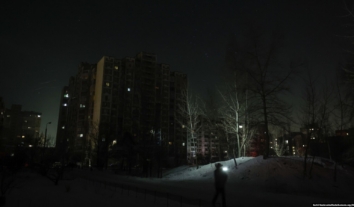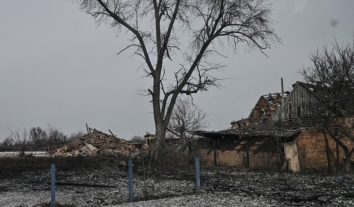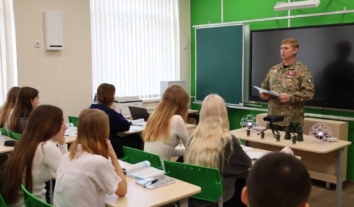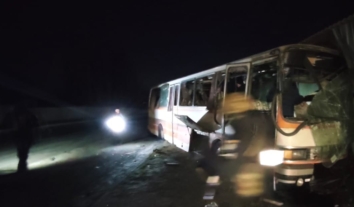Russia has been suppressing freedom of expression and religion during years of temporary occupation in Crimea – UN and Amnesty International
Russian occupying authorities in Crimea have consistently suppressed freedom of expression, including for members of minority cultures and identities. They have also severely curtailed freedom of religion for minority groups, particularly those opposing official narratives, such as the Mejlis.
According to the UN report “Ten years of occupation by the Russian Federation: Human rights in the Autonomous Republic of Crimea and the City of Sevastopol, Ukraine”, Russians also banned expressions of diverse sexual orientations and gender identities.
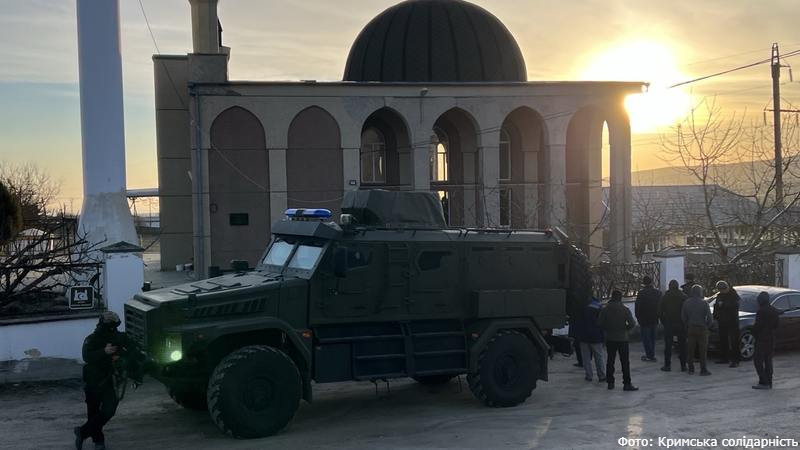 Searches of the Muslim community “Eski Qırım” by the illegal “police” in a temporarily occupied town of Staryy Krym on February 24, 2024
Searches of the Muslim community “Eski Qırım” by the illegal “police” in a temporarily occupied town of Staryy Krym on February 24, 2024The United Nations Human Rights Monitoring Mission in Ukraine (HRMMU) pointed out that Russian law imposed in Crimea required public organisations, including religious communities, to re-register in order to obtain legal status. Only Russian citizens were allowed to register a religious community.
The number of registered religious organisationsі had dropped from 2,083 to 907 in Crimea as of 31 December 2022. The report’s authors explain that religious communities cannot open bank accounts, employ people, invite foreigners, or rent State-owned property without registration.
‘The Ukrainian Orthodox Church of the Kyiv Patriarchate (UOC-KP) chose not to re-register under Russian Federation law and thus has no legal recognition. Since 2014, at least 17 UOC-KP churches have been either seized by occupying authorities or closed due to non-renewal of their property leases,” the HRMMU reports in the document.
According to Amnesty International, in 2014, armed men ransacked UOC-KP churches in Perevalne (Anğara), Sevastopol (Aqyar), Krasnoperekopsk (Yañı Qapı) and Kerch (Keriç), and parishes of the UOC-KP were put under pressure to switch allegiance to the Moscow Patriarchate.
Over the first year of the Russian occupation, the UOC-KP lost 38 of its parishes due to, inter alia, the intimidation and harassment of their clergy, many of whom declined to take Russian passports and were forced to leave Crimea.
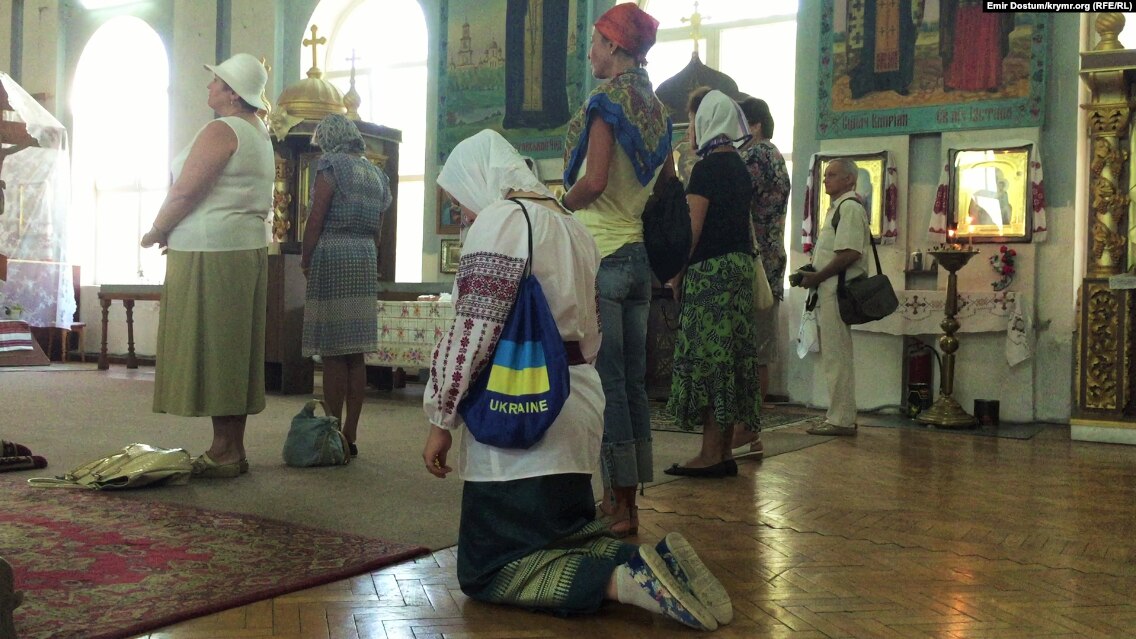 A prayer service on the occasion of the 24th anniversary of Ukrainian independence is held on August 24, 2015, in the Cathedral of Volodymyr and Olha in Simferopol
A prayer service on the occasion of the 24th anniversary of Ukrainian independence is held on August 24, 2015, in the Cathedral of Volodymyr and Olha in SimferopolIn 2016, the de facto authorities in Crimea ruled that the UOC-KP had to leave its cathedral in Simferopol (Aqmescit) and pay a fine of 500,000 rubles for failing to register.
In 2016, the Parliament of the Russian Federation adopted legal amendments – referred to as the “Yarovaya package” – as an anti-terrorism measure. The amendments criminalize proselytizing, preaching, praying, or disseminating religious materials outside of “specially designated places”, like officially recognized religious institutions, effectively banning missionary groups and house prayers.
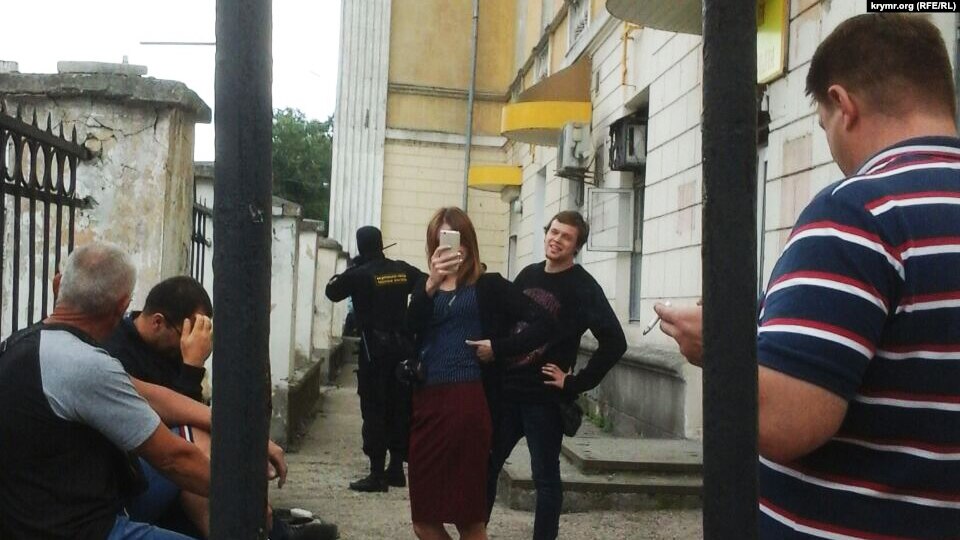 On August 31, 2017, armed men, some masked, invaded the UOC-KP’s main cathedral in Simferopol.
On August 31, 2017, armed men, some masked, invaded the UOC-KP’s main cathedral in Simferopol.In 2019, the United Nations Human Rights Committee issued interim measures calling on Russia not to proceed with the eviction. However, Russia ignored the interim measures. On 11 May 2023, bailiffs acting for the illegitimate “State Property Fund of Crimea” forcibly entered the building and made a register of its contents, which were then removed and the building’s entrance sealed. Following the eviction, Archbishop Kliment, the head of the Orthodox Church of Ukraine’s Crimean diocese, said that the diocese “has effectively ceased to exist”.
The HRMMU has documented in total 95 related court cases in temporarily occupied Crimea since the introduction of the ‘Yarovaya package’, including for:
- publishing content on social media without the full official name of the religious organisation;
- leading a Muslim prayer for a local congregation without official authorizing documentation;
- leading Muslim rites and practices in a mosque without being the official imam of that mosque;
- conducting evangelic sermons in a private home.
Russian law enforcement agencies have, on repeated occasions, disrupted Friday prayers in Crimean mosques, conducting arbitrary passport checks of all those present. On numerous occasions, they targeted Crimean Tatars, the overwhelming majority of whom are Muslim, via arbitrary, intentionally destructive house searches looking for religious literature.
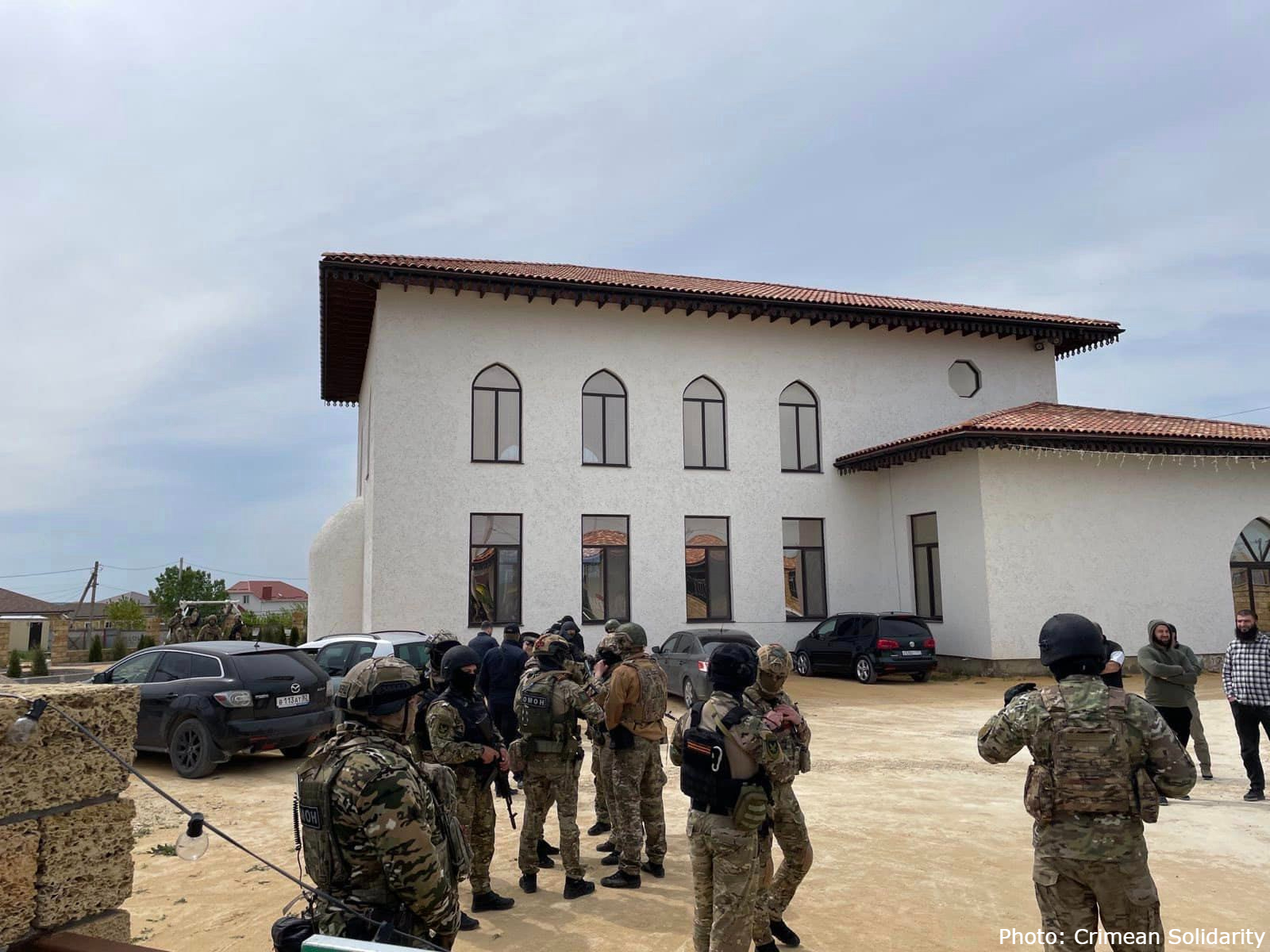 Arbitrary passport checks of Muslims, in the Suvuk Dere mosque in temporarily occupied Simferopol by Russian authorities, on May 12, 2023.
Arbitrary passport checks of Muslims, in the Suvuk Dere mosque in temporarily occupied Simferopol by Russian authorities, on May 12, 2023.Over 100 Crimean Tatars have been prosecuted on unfounded terrorism-related charges, and many of them have been convicted following trial by military courts in Russia. They have been receiving sentences of up to 24 years, serving in Russia in contravention of international humanitarian law.
A 2017 decision of the Supreme Court of the Russian Federation imposed a blanket prohibition on all congregations of Jehovah’s Witnesses, declaring the group an “extremist organisation”. The HRMMU reports that this decision affected an estimated 8,000 congregants on the peninsula.
Read also: Russia persecutes at least 25 Crimean residents for their faith as Jehovah’s Witnesses
The HRMMU reported that members of Ukrainian cultural organisations have been threatened and interrogated by the Russian occupying authorities on dubious grounds and the de facto authorities have restricted public activities involving expressions of Ukrainian culture and identity.
Occupying authorities have also shut down institutions promoting Ukrainian culture and traditions. Examples include the closure of the Museum of Ukrainian Vyshyvankaі by Russians in February 2015, and the removal of books by contemporary Ukrainian authors from the Library named after Ivan Franko in Simferopol.
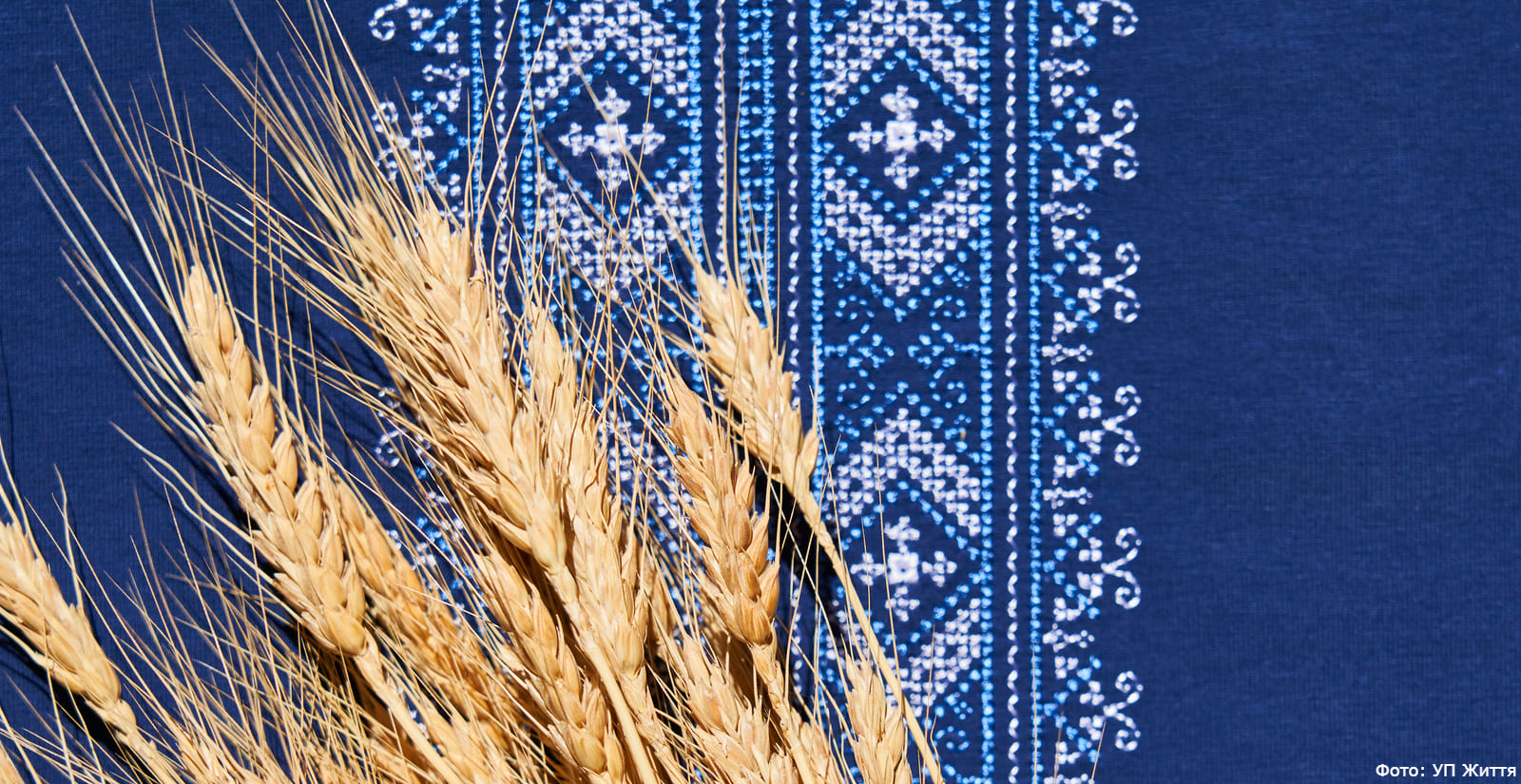
Since Russia’s military seizure of the Crimean peninsula, many cultural events have been banned by the local de facto authorities and public protest has been virtually extinguished, in violation of the rights to free expression, peaceful assembly and cultural identity. This has affected everything from street protests to traditional commemorative and cultural events held by Crimean Tatars and gatherings to celebrate Ukrainian culture.
On May 18, 2014, the 70th anniversary of the deportation of the entire Crimean Tatar population to remote parts of the USSR was observed. Two days before, the then-de facto “Prime Minister” of Crimea, Serhii Aksenov, announced that all public assembles in Crimea were to be disallowed until 6 June so as to prevent possible “provocations” and any “disruption of the summer holiday season”.
Amnesty International called the ban a “cynical attempt to prevent the commemoration of 18 May by the Crimean Tatar population”, who, in the end, were allowed to perform a collective prayer in just one remote location, and in the presence of a large law enforcement force.
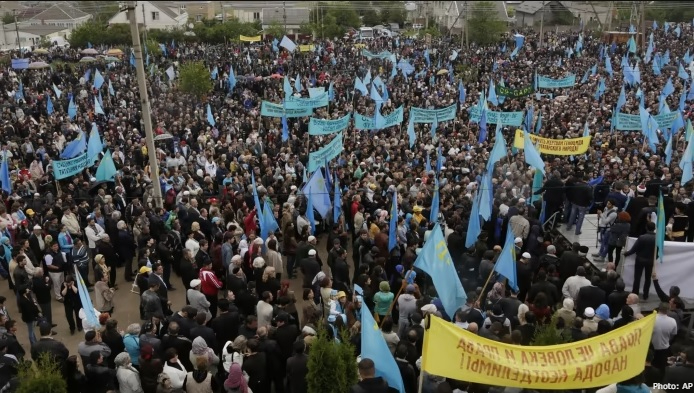 Crimean Tatars rally in the Crimean capital Simferopol, carrying banners in their national colours
Crimean Tatars rally in the Crimean capital Simferopol, carrying banners in their national coloursIn 2016, no assemblies were authorized, as the de facto “Mayor” of Simferopol issued a blanket ban on all mass public, cultural, entertainment and other events except those organized by the authorities. Local de facto authorities’ prior permission, as illegally required on Ukrainian territory by Russian laws, to hold this and other Crimean Tatar commemorations, such as Flag Day on 26 June, has been repeatedly denied since 2014.
The HRMMU explained that as parties to an international armed conflict, the Russian Federation and Ukraine are bound by treaty and customary international humanitarian law (IHL), primarily the four Geneva Conventions of 1949, their 1977 Additional Protocol I, the 1907 Hague Convention IV with its annexed Regulations concerning the Laws and Customs of War on Land (Hague Regulations), and other IHL treaties and rules of customary IHL.
IHL applies to situations of armed conflicts and cases of partial or total occupation of the territory of a State, even if the occupation meets with no armed resistance. Annexation of occupied territory is illegal and does not deprive protected persons of protection under IHL. An occupying Power does not acquire sovereignty over the occupied territory; therefore, the occupying Power is required to respect the existing laws and institutions of the occupied territory as far as possible and to avoid making far-reaching changes in the existing order or to the intrinsic characteristics of the occupied territory.
The HRMMU concluded that the failure by Russia to uphold its obligations under IHL as the occupying Power in Crimea creates numerous and complex issues for Ukraine with respect to future re-integration of the peninsula, including the re-issuance of official documents, the classification and implementation of court decisions, and the regularization of expropriated property.
By way of background, the Russian aggression against Ukraine began with the occupation of Crimea on 18 March 2014 and has lasted for ten years. Kyiv authorities do not recognise the annexation of Ukrainian territories and call Russia’s acts “an attempt of annexation”.
The last two years have been marked by widespread destruction and civilian losses throughout Ukraine. There are tens of thousands of dead and wounded, and millions of people forcibly displaced from their homes across Ukraine and abroad.
In ten years of reporting on the human rights situation in the peninsula, the disregard of the Russian Federation for its obligations under IHL has inflicted severe and enduring harm on the people of Crimea. A similar pattern is emerging in other parts of Ukraine: eight years after occupying and illegally annexing Crimea, Russia proceeded to occupy and then illegally annexe areas of Donetsk, Luhansk, Kherson, and Zaporizhzhia regions, where OHCHR has documented violations of a similar nature.
The HRMMU indicated that Russia continues to be bound by international human rights treaties and customary law, which apply concurrently with IHL and mutually reinforce the protection of human rights during armed conflict.
The human rights obligations of States apply extraterritorially in all circumstances where they exercise jurisdiction or effective control, including in occupied territory. This includes non-derogable rights, even in times of emergency, such as the right not to be subjected to arbitrary deprivation of life, torture or other cruel, inhuman or degrading treatment or punishment, fundamental fair trial guarantees, and the right to an effective remedy for victims. International human rights law also prohibits discrimination based on language, opinion, national origin or social class and guarantees the right to participate in cultural life.
Earlier, the coalition of NGOs, which since 2014 has been engaged in the protection of the rights of victims of the war, presented its vision of the 11 priority steps of Ukraine for 2024 in the context of the full-scale invasion. This document seeks to punish war criminals and support war victims. Among them are the ratification of the Rome Statute, the definition of categories of war-affected people for their full support, the payment of pensions to displaced persons and the definition of the state strategy for the reintegration of de-occupied territories.

